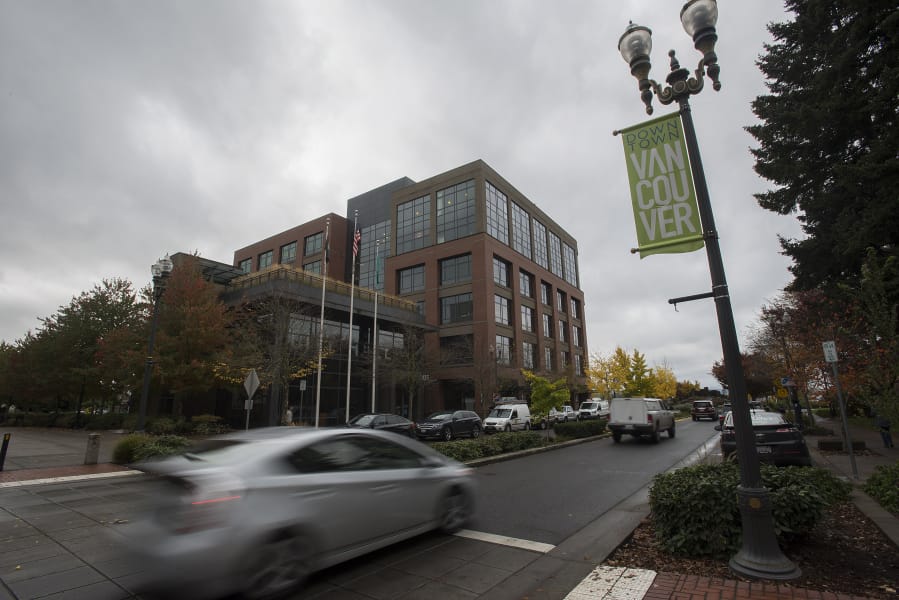City staff asked the Vancouver City Council on Monday to consider extending the city’s fossil fuel moratorium as they assess land-use codes to improve public and environmental safety.
Aaron Lande, policy and program manager, said an extension would give staff time to update land-use standards for fossil fuel facilities to align them with other planning efforts, such as the Vancouver Strategic Plan, Climate Action Plan, and other land-use and development code amendments.
The council will formally consider the moratorium extension toward the end of the month, which will be followed by a hearing.
The suspension prohibits new or expanded large-scale fossil fuel facilities from distributing, extracting, refining and processing fossil fuels. It can only be initiated in six-month increments; the latest moratorium is scheduled to expire Dec. 8.
Facilities that produce energy from landfill gas and fossil fuel byproducts, such as asphalt or certain plastics, are not impacted. Gas stations, rail yards, airports and marine-service facilities are also excused.
This effort supports an overarching goal to create zoning code changes that would implement similar standards defined in the moratorium, said Chad Eiken, community development director.
Five existing fossil fuel facilities, both private and public, located on and around the Port of Vancouver would be affected by these proposals. The identified buildings contain hazardous materials on land that is highly susceptible to liquefaction if an earthquake occurs. Lande said this could result in the materials flowing into the Columbia River and surrounding wetlands.
“The consequences could be catastrophic, as it can cause pipelines to rupture, dislocate railway alignments, and pull apart the foundations and walls of buildings,” he said.
Environmental groups were generally supportive of the proposed zoning codes, Eiken said. Conversely, industry groups presented concerns about economic impacts and challenges associated with facility renovations and relocations.
City staff issued a State Environmental Policy Act Determination of Non-Significance — meaning the proposed land-use codes would have minimal impacts — and withdrew it after an appeal was filed. The Western States Petroleum Association challenged the determination, arguing that the staff’s analysis was insufficient regarding facility relocations and general retrofitting.
In response, Eiken said the six-month moratorium would allow staff to guarantee code language is legally defensible, as it will likely face appeals from fossil fuel organizations. During the extension, city staff would address concerns raised by involved parties, determine appropriate standards for facility relocation or consolidation, and clarify code definitions.
Additionally, they will complete further analyses to support the code changes, he said. City staff will consult with other jurisdictions that went through a similar process, such as Whatcom County and Tacoma.




